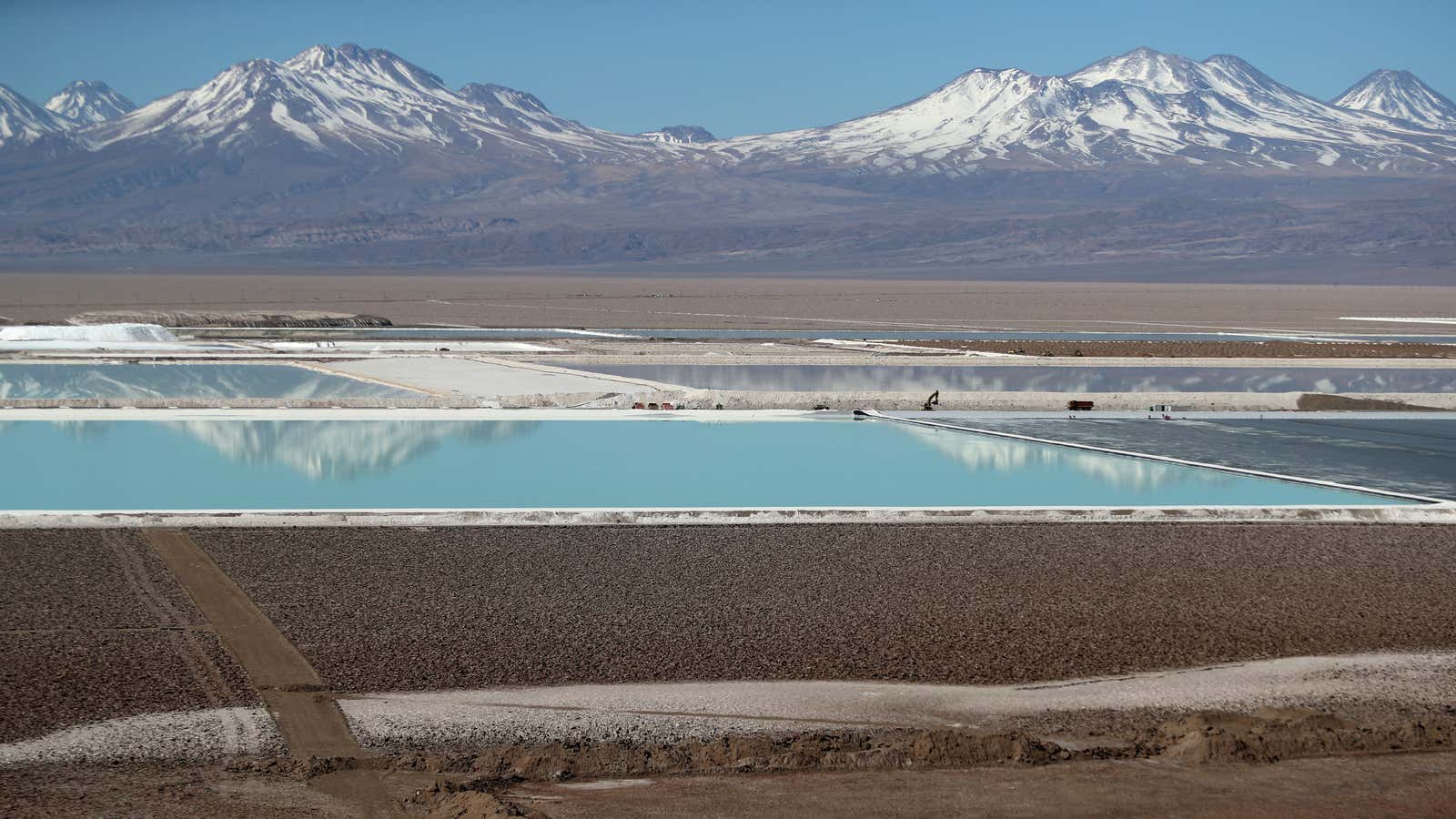It takes an estimated 70,000 liters of water to mine a single ton of lithium, an alkali metal that humanity may come to depend on as it turns to batteries to reduce its reliance on fossil fuels.
Lithium is often found in the world’s driest places, and its production is reportedly wreaking havoc on the water supplies of indigenous communities in Chile’s Atacama desert, which is home to a giant deposit of the sought-after metal.
A $20 million investment led by a Bill Gates-backed fund into a lithium-mining technology firm, called Lilac Solutions, could be a “game changer” in tackling that problem if the technology proves commercially viable, said Nicolas Saldias, a senior researcher at the Wilson Institute think tank’s Lithium Triangle Initiative. Lilac, which announced the investment this week, says its ion exchange technology is twice as efficient as the current mining process and takes a fraction of the time.
Most of the world’s lithium is found in underground pools of briny water. At the moment, mining companies pump more water into the brine, pushing it above ground so it forms into ponds. They wait for the brine to evaporate, and then filter the lithium out of the remaining material. Lilac instead uses what it calls “ion exchange beads,” which the company says can separate the lithium from the other materials in the water. Once the lithium is removed, Lilac says it can reuse the water instead of waiting months for it to evaporate. The process collects 80% of the available lithium, compared to around 40% under current methods, and takes a matter of hours, as opposed to up to two years, Lilac says.
The technology could also unlock the vast potential of Bolivia, which has the world’s largest lithium resources but doesn’t produce any because of tricky weather conditions, Saldias said. “If you have a lot of weather like rain and clouds, it makes it very difficult to extract,” he said. “[But] if you have this technology, which reduces the necessity of the evaporation process, it means it will probably make it much more valuable for a country like Bolivia to see its massive resources being more exploitable.”
Lilac CEO David Snydacker told Bloomberg he eventually hopes to use the technology to pull lithium out of brine that’s produced in other forms of energy production, such as oil mining and geothermal power. Breakthrough Ventures, the lead investor in the fundraising round, is backed by Amazon’s Jeff Bezos and Alibaba’s Jack Ma, as well as Gates.
California-based Lilac will use the investment to expand its engineering staff and scale up production of its beads, and to deploy the new technology in projects throughout South America and the US. A pilot run in Argentina is planned for later this year, Snydacker said.
